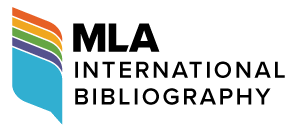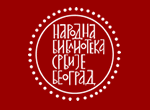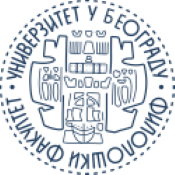Los precursores y su Borges: La escultura premoderna en el tiempo moderno
DOI:
https://doi.org/10.18485/beoiber.2024.8.2.6Resumen
Borges no tiene límites: sus textos no dejan fronteras sin cruzar entre lo lejano y lo cercano, lo temprano y lo tardío, lo medieval y lo moderno. Sin embargo, tal inmensidad no es de ninguna manera el resultado de su supuesta alegría moralmente ingrávida, que muchos posmodernistas se alegraron de ver como un digno presagio. Como pretendo mostrar en este ensayo, la principal estrategia intelectual, literaria y ética de Borges es lo que podría llamarse condensación del tiempo: utilizando su asombrosa erudición, Borges muestra que nuestro mundo moderno y secularizado, donde cada generación se percibe a sí misma como nueva, única y sin precedentes, se compone de innumerables estratos creados por la experiencia colectiva de generaciones pasadas. La empresa de Borges es consistente con los proyectos intelectuales y artísticos del modernismo –incluidas obras de Virginia Woolf, Marcel Proust, James Joyce y Franz Kafka– en su esfuerzo por ofrecer una alternativa al tiempo lineal, irreversible y secularizado del mundo moderno; una alternativa construida como una cuestión de elección interpretativa y al mismo tiempo moral y existencial: reconocer o negar la ética del tiempo. Las ideas judías desempeñaron un papel importante, aunque no el único, en la configuración de la visión de Borges del tiempo condensado, al igual que, en términos más generales, su observación comprensiva durante toda su vida del destino histórico único del pueblo judío. Por lo tanto, sostengo, la tendencia formalista en la investigación reciente de «traducir» el tema judío de Borges a un lenguaje deshistorizado y esencializado de tropos literarios, un sofisticado juego mental que no guarda relación con la historia (judía) real, a menudo tiene el costo de convertir hacer la vista gorda ante la dimensión ética del proyecto intelectual de Borges.
Referencias
Aizenberg, Edna. «‘I, a Jew’: Borges, Nazism, and the Shoah.» The Jewish Quarterly Review 104.3 (2014): 339-353. Print.
—. «Postmodern or Post-Auschwitz: Borges and the Limits of Representation.» Variaciones Borges 3 (1997): 141-152. Print.
—. The Aleph Weaver: Biblical, Kabbalistic and Judaic Elements in Borges. Potomac: Scripta Humanistica, 1984. Print.
—. «Emma Zunz: A Kabbalistic Heroine in Borges’s Fiction.» Studies in American Jewish Literature 3 (1983): 223-235. Print.
Alazraki, Jaime. Borges and the Kabbalah: And Other Essays on His Fiction and Poetry. Cambridge: Cambridge University Press, 1988. Print.
Almeida, Ivan. «Borges, Dante et la modification du passé». Variaciones Borges 4 (1997): 74-99. Impression.
Balderston, Daniel. «The Universe in a Nutshell: The Long Sentence in Borges’s ‘El Aleph’.» Variaciones Borges 33 (2012): 53-72. Print.
Baumgartner, Frederic J. Behind Locked Doors: A History of the Papal Elections. London: Palgrave Macmillan, 2003. Print.
Bell-Villada, Gene H. Borges and His Fiction: A Guide to His Mind and Art. 2nd ed. Austin: University of Texas Press, 1999. Print.
Bloom, Harold. Kabbalah and Criticism. New York: Continuum, 1975. Print.
Borges, Jorge Luis. «Pierre Menard, autor del Quijote.» Sur 56 (1939), 7-16. Impreso.
—. «Israel.» Sur 254 (1958), 1-2. Impreso.
—. Other Inquisitions 1937-1952. 2nd ed. Translated by Ruth L. C Simms. Austin: University of Texas Press, 1975. Print.
—. Borges, oral. Buenos Aires: Emecé Editores, 1979a. Impreso.
—. «Jorge Luis Borges: Homenaje a Victoria Ocampo». [Radio broadcast] UNESCO Radio, 5 May 1979b. Web. 18 Nov. 2024.
—. Seven Nights. Translated by Eliot Weinberger. New York: New Directions Books, 1984. Print.
—. Collected Fictions. Translated by Andrew Hurley. London: Penguin Books, 1998. Print.
—. Selected Non-Fictions. Translated by Esther Allen, Suzanne Jill Levine, and Eliot Weinberger. London: Penguin Books, 1999. Print.
Călinescu, Matei. Five Faces of Modernity. Durham: Duke University Press, 1987. Print.
Cervantes Saavedra, Miguel de. Don Quixote. Translated by John Rutherford. London: Penguin Books, 2000. Print.
de Man, Paul. Critical Writings, 1953-1978. Minneapolis: University of Minnesota Press, 1989. Print.
Deppner, Corinna. «Borges and Judaism.» Robin Fiddian (ed.). Jorge Luis Borges in Context. Cambridge: Cambridge University Press, 2020. 204-210. Print.
Fishburn, Evelyn. «Jewish, Christian, and Gnostic Themes.» Edwin Williamson (ed.). The Cambridge Companion to Jorge Luis Borges. Cambridge: Cambridge University Press, 2013. 56-67. Print.
—. «Reflections on the Jewish Imaginary in the Fictions of Borges.» Variaciones Borges 5 (1998): 145-156. Print.
—. «Borges, Cabbala and ‘Creative Misreading’.» Ibero-amerikanisches Archiv 14.4 (1988): 401-418. Print.
Flynn, Annette U. The Quest for God in the Work of Borges. New York and London: Bloomsbury, 2009. Print.
Freedman, Harry, and Simon Maurice (eds.). Midrash Rabbah. Numbers II. Translated by Judah J. Slotki. London: Soncino Press, 1939. Print.
Graff Zivin, Erin. The Wandering Signifier: Rhetoric of Jewishness in the Latin American Imaginary. Durham: Duke University Press, 2008. Print.
Hammerschlag, Sarah. «Troping the Jew: Jean François Lyotard’s Heidegger and ‘the jews’.» Jewish Studies Quarterly 12:4 (2005): 371-398. Print.
Hernaiz, Sebastián. «Borges, reescritor. En torno a ‘El escritor argentino y la tradición’ y la intriga de sus contextos de publicación». Estudios filológicos 63 (2019): 81-98. Impreso.
Johnson, David E. Kant’s Dog. On Borges, Philosophy, and the Time of Translation. New York: State University of New York Press, 2012. Print.
Kristal, Efraín. «Jorge Luis Borges and Philosophy.» Jeffrey R. Di Leo (ed.). Philosophy as World Literature. New York and London: Bloomsbury, 2020. 247-260. Print.
—. «Jorge Luis Borges’s Literary Response to Anti-Semitism and the Holocaust.» The Jewish Quarterly Review 104:3 (2014): 354-361. Print.
La Santa Biblia: Reina-Valera 1960. New York: American Bible Society, 1964. Impreso.
Maselli, Matteo. «Le vie oblique dell’allusione: Borges, Dante e il dialogo sull’eterno». Variaciones Borges 45 (2018): 61-78. Impresso.
Núñez-Faraco, Humberto. «In Search of the Aleph: Memory, Truth, and Falsehood in Borges’s Poetics.» The Modern Language Review 92.3 (1997): 613-629. Print.
Ortega, Julio. «El Aleph y el lenguaje epifánico». Hispanic Review 67.4 (1999): 453-466. Impreso.
Pérez, Rolando. «Borges and Bruno Schulz on the Infinite Book of the Kabbalah.» Confluencia 31.2 (2016): 41-56. Print.
Rosman, Silvia. «Politics of the Name: On Borges’s ‘El Aleph’.» Variaciones Borges 14 (2002): 7-21. Print.
Scholem, Gershom (ed.). Zohar: The Book of Splendor. Basic Readings from the Kabbalah. Translated by Maurice Simon, Harry Sperling, and Paul Levertoff. New York: Schocken Books, 1949. Print.
Shaw, Donald L. «Borges, Ethics and Evil.» Variaciones Borges 34 (2012): 59-66. Print.
Sosnowski, Saúl. «‘The God’s Script’ – A Kabbalistic Quest.» Modern Fiction Studies 19.3 (1973): 381-394. Print.
—. «El Verbo cabalístico en la obra de Borges». Hispamérica 3.9 (1975): 35-54. Impreso.
—. Borges y la Cábala: La búsqueda del Verbo. 2nd ed. Buenos Aires: Ed. Modesto Rimba, 2020. Impreso.
Stavans, Ilan. «Emma Zunz: The Jewish Theodicy of Jorge Luis Borges.» Modern Fiction Studies 32.3 (1986): 469-475. Print.
—. «Borges’s Zionist Bent: Newly Translated Poems.» The Forward, 24 December 2008. Web. 18 Nov. 2024.
—. Borges, the Jew. New York: State University of New York Press, 2016. Print.
Steiner, George. After Babel: Aspects of Language and Translation. Oxford: Oxford University Press, 1975. Print.
The Bible: New International Version. Palmer Lake: Biblica, 2011. Print.
Thiem, Jon. «Borges, Dante, and the Poetics of Total Vision.» Comparative Literature 40.2 (1988): 97-121. Print.
Ungureanu, Delia. «The Revolutionary Force of the Periphery: The Levant, Nostalgia, and World Literature.» Dibur 9 (2020): 55-71. Print.
Vigée, Claude. «Borges devant la Kabbale juive. De l’écriture du dieu au silence de l’Aleph». Revue de littérature comparée 320.4 (2006): 397-413. Impression.
Williamson, Edwin. Borges, a Life. New York: Viking, 2004. Print.
Wolfson, Elliot R. «In the Mirror of the Dream: Borges and the Poetics of Kabbalah.» The Jewish Quarterly Review 104.3 (2014): 362-379. Print.
Descargas
Publicado
Número
Sección
Licencia
Derechos de autor 2024 Michael Makarovsky

Esta obra está bajo una licencia internacional Creative Commons Atribución-CompartirIgual 4.0.
Aquellos autores/as que tengan publicaciones con esta revista, aceptan los términos siguientes:
- Los/las autores/as conservarán sus derechos de autor y garantizarán a la revista el derecho de primera publicación de su obra, el cuál estará simultáneamente sujeto a la Licencia de Reconocimiento-CompartirIgual 4.0 Internacional (CC BY-SA) que permite a terceros compartir la obra siempre que se indique su autor y su primera publicación en esta revista.
- Los/las autores/as podrán adoptar otros acuerdos de licencia no exclusiva de distribución de la versión de la obra publicada (p. ej.: depositarla en un archivo telemático institucional o publicarla en un volumen monográfico) siempre que se indique la publicación inicial en esta revista.
- Se permite y recomienda a los/las autores/as difundir su obra a través de Internet (p. ej.: en archivos telemáticos institucionales o en su página web) antes y durante el proceso de envío, lo cual puede producir intercambios interesantes y aumentar las citas de la obra publicada. (Véase El efecto del acceso abierto).















